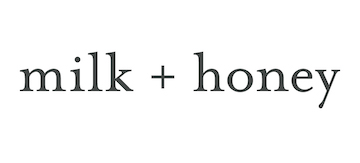At milk + honey, we have a variety of sunscreens available at our online store, as well as each location. You may notice sunscreen labels are changing. USA Today wrote an article describing the changes that are taking place, allowing you to fully understand how best to protect yourself from the sun. Here is an excerpt from the article:
Here is what you need to know:
• SPF numbers still matter. This is the number that tells you how well a product protects you from sunburn, caused by ultraviolet B (UVB) rays. The numbers range from 2 to 100 or more. For a good margin of safety, choose products with SPFs of at least 30 to 50, says Henry Lim, chief of dermatology at Henry Ford Hospital in Detroit. Keep in mind that you get the promised protection only if you apply the product liberally and often (at least every two hours).
• Low SPFs now come with a warning. Products with SPFs below 15 must carry warnings that they protect only against sunburn, not skin aging or skin cancer. Such products, often sold as “tanning lotions,” are not recommended by dermatologists but “there’s definitely a market of people in sun-tanning denial who are still using them,” says Ellen Marmur, a New York City dermatologist and spokeswoman for the American Academy of Dermatology.
• Broad spectrum claims are backed by testing. Dermatologists have long recommended broad spectrum sunscreens, those that offer significant protection from both UVB and UVA rays. Both kinds of rays contribute to wrinkles and skin cancer. Now products must pass a standard test before they make that claim.
• Water-resistant does not mean waterproof. Labels can no longer say that sunscreens are waterproof or sweat-proof, because all of them wash or wear off. The new labels can claim water resistance, but must tell consumers how often to reapply the product when swimming or sweating — every 40 minutes or every 80 minutes. Those claims also must be backed by testing.
• Sunscreen is never enough. Broad spectrum sunscreens with SPFs of 15 and above now carry labels that say they “can reduce the risk of skin cancer and early skin aging” if used as directed — in combination with limiting your time in the sun, especially at midday, and wearing long sleeves, pants, hats and sunglasses.

